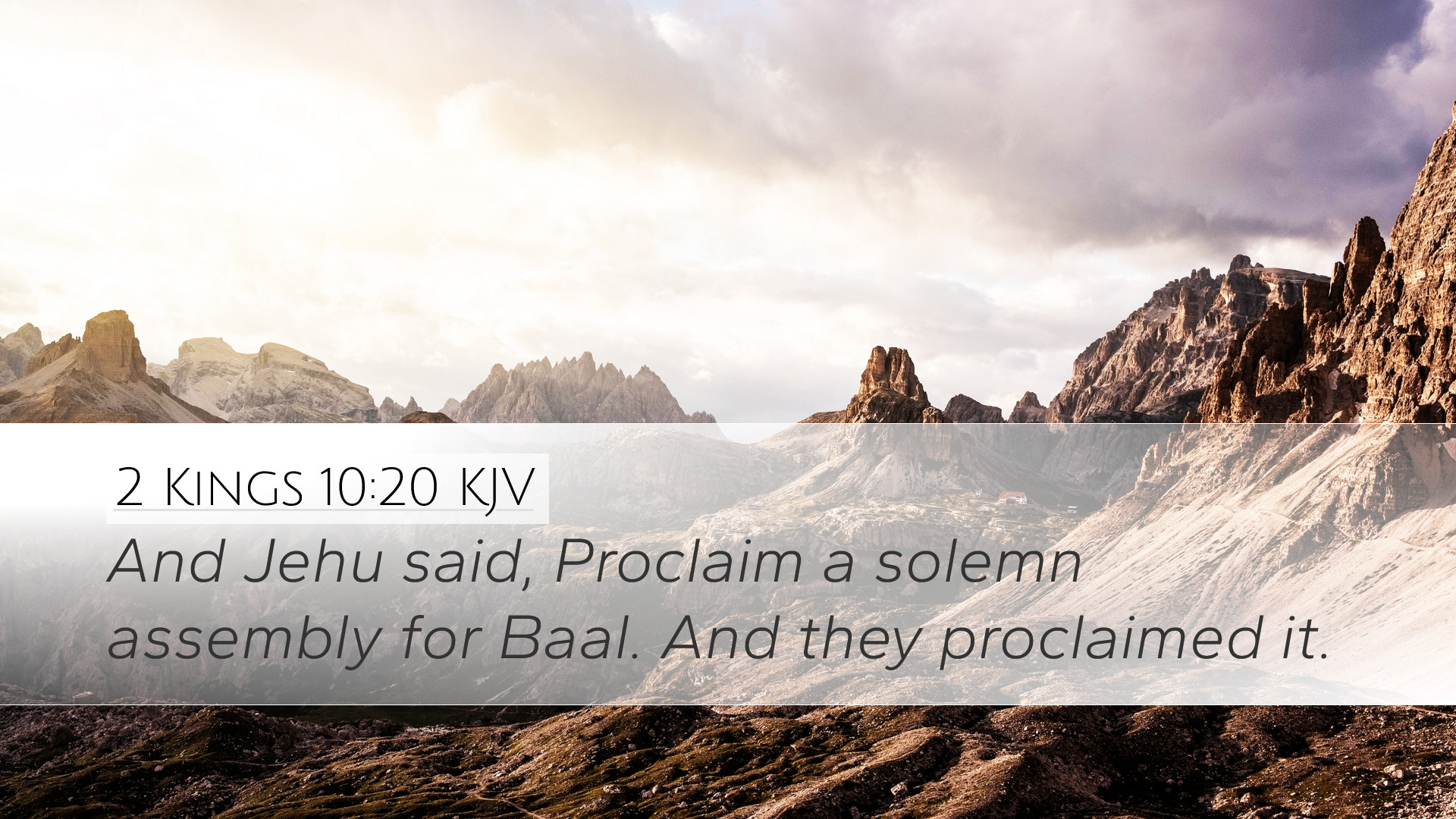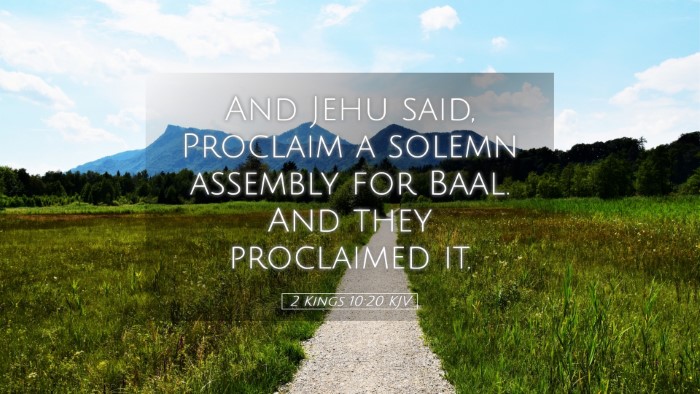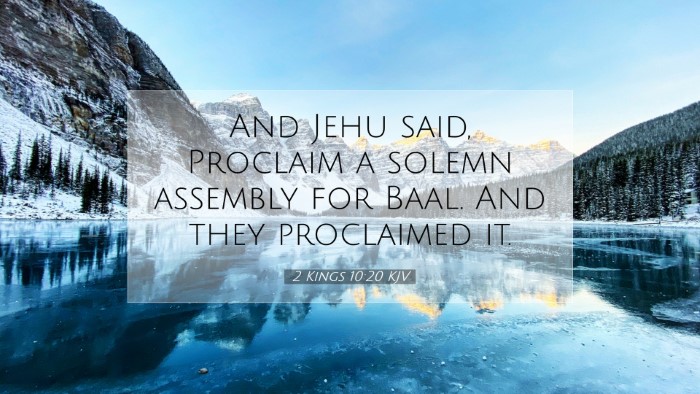Commentary on 2 Kings 10:20
Verse: 2 Kings 10:20
"And Jehu said, Proclaim a solemn assembly for Baal. And they proclaimed it."
Introduction
This passage marks a pivotal moment in the narrative of 2 Kings, signaling Jehu's decisive actions against the worship of Baal and the remnants of Ahab’s corrupt dynasty. Understanding the motives and implications of Jehu's proclamation involves delving deep into theological, historical, and cultural perspectives.
The Context of Baal Worship
Baal worship was pervasive in Israel due to the influence of Ahab and Jezebel. It represented a fundamental deviation from the covenantal worship of Yahweh. Jehu’s mission, as ordained by God through Elijah, was to eradicate this idolatrous practice.
Insights from Matthew Henry
Matthew Henry observes that Jehu's command to assemble for Baal was a strategic move. He recognizes that Jehu’s sharp tactics aimed to expose and eliminate the false prophets and worshippers of Baal. Henry comments on the irony of Jehu’s proclamation, noting that it was a ploy to gather those who were devoted to Baal in order to bring about their destruction.
Reflections from Albert Barnes
Albert Barnes provides an essential understanding of the implications of this assembly. He highlights how Jehu's actions reflect God’s judgment against false worship. The assembly was designed to be a public demonstration where the true nature of Baal worship would be revealed, and its followers would face the consequences of their idolatry. According to Barnes, this represents a critical divine intervention to cleanse Israel of its sins.
Analysis by Adam Clarke
Adam Clarke emphasizes the significance of the term "solemn assembly." He argues that Jehu deliberately used religious language to mislead the Baal worshippers. Clarke elaborates on the ceremonial aspects of the Baal worship, suggesting that Jehu’s fraudulent invitation was intended to lure out all of Baal’s supporters under the guise of legitimate worship, ultimately leading to their judgment.
Theological Implications
The act of calling a solemn assembly invokes traditional practices of worship but is counter to the spirit of true worship in Israel. Theologically, this highlights the concept of God’s sovereignty over false gods, underscoring that no matter how deeply entrenched Baal worship was, it was destined for destruction.
- The Sovereignty of God: Jehu's proclamation was orchestrated by divine will, illustrating God's overarching control over Israel’s fate.
- The Nature of True Worship: The passage prompts a reevaluation of what constitutes worship and whom we worship, inviting believers to consider the weight of idolatry in their lives.
- The Call to Accountability: It serves as a reminder that all followers are accountable for their adherence to God’s commands.
Historical Context
Historically, Jehu was anointed by a prophet to cleanse Israel of the house of Ahab, and part of this divine mandate was to eradicate Baal worship entirely. This context enriches our understanding of verse 20 by showcasing Jehu not merely as a political leader but as an instrument of God’s judgment.
Importance of the Assembly
The assembly's proclamation would have held significant societal implications, as it drew the nation’s attention to the inevitable confrontation between the worship of Yahweh and idol worship. It signifies a moment of confrontation where falsehood is prepared to meet divine truth.
Practical Applications
For pastors and theologians today, 2 Kings 10:20 offers several points for practical application:
- Authenticity in Worship: Encourages leaders to examine the authenticity of worship practices within their communities.
- Confronting Idolatry: Challenges believers to identify and confront modern forms of idolatry in their own lives and congregations.
- Courageous Leadership: Jehu’s strategic leadership invites pastors to be courageous and resolute against cultural pressures that threaten biblical truth.
Conclusion
2 Kings 10:20 functions on multiple levels—historical, theological, and practical. As Jehu gathers the worshippers of Baal, he orchestrates a divine judgment against idolatry, revealing the serious implications of turning away from Yahweh. The teachings of Matthews Henry, Albert Barnes, and Adam Clarke invite reflection on the nature of true worship and the critical stance against idolatry that all believers must uphold.


